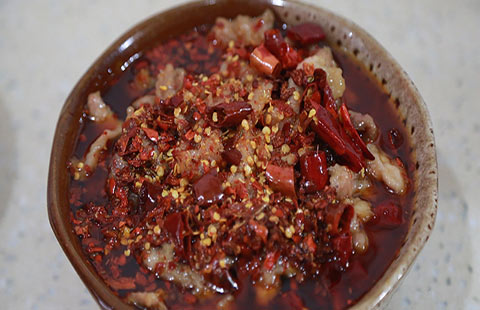Fighting China's counterfeits in the online era
BEIJING - A secret team in Chinese e-commerce giant Alibaba has the task of pretending to be online consumers who test-buy purchases from the billion-plus products on its platforms.
They spot check about 100,000 products and invest around 100 million yuan ($15.15 million) a year on average. Around one in four online shops are checked annually.
"Spot checks are not random. They are guided by big data from our platforms," said team leader Qin Seng. Using product ratings, consumer disputes and other information, the team builds a model to identify suspected counterfeits and shops that sell counterfeits.
The whole process is videoed to retain evidence. The sample purchases are sent to rights holders or authoritative quality inspection agencies. If identified as fake, the products are removed from the platform. The vendors can face the closure of their online shops. If identified as genuine products, they are stored as Alibaba's assets.
Alibaba's Storehouse of Counterfeit Evidence is a 300-square-meter warehouse in Alibaba Group's Xixi Park, in Hangzhou, Zhejiang province. Counterfeits can be stored there for more than three years as legal evidence.
The spot checks are symptomatic of China's battle against counterfeits in the internet era.
Chai Haitao, deputy director of the Office of National Leading Group of the Fight against IPR Infringement and Counterfeiting, said that with the rapid development of China's internet economy, infringements and counterfeits are constantly renewed.
"We need to strengthen cross-sector, cross-regional, and cross-border cooperation to combat counterfeits. We also need to mobilize enterprises, industry organizations and the public," Chai said.
Alibaba's Anti-Counterfeiting Special Task Force, formed last year, actively works with local law enforcement agencies, said Qin Seng.
"After we clean up online shops selling counterfeits, the counterfeiters usually change their identities and places of dispatch, using more covert means to continue selling online," Qin said.
The team uses big data to identify counterfeits and the vendors, affiliated dealers and factories suspected of producing or selling counterfeit items. They pass evidence to the public security, administration of commerce and industry, quality inspection, food and drug supervision and other law enforcement agencies. At the same time, they investigate the evidence in the field.
The team faces many risks in their offline probes.
"Most counterfeiting dens are hidden and well-organized. For example, we encountered a village producing counterfeits. The villagers installed cameras everywhere and when they saw outsiders entering, they became vigilant and even threatened us," Qin said.
Alibaba's cooperation with local authorities to locate counterfeit sources has proved effective. They have partnerships with the public security bureaus of 13 provinces.
In 2016, Alibaba submitted 1,184 leads to law enforcement agencies; helped public security bureaus arrest 880 suspects; assisted in the closure of 1,419 counterfeit manufacturing locations; and helped seize merchandise worth more than 3 billion yuan ($455 million).
In August, with evidence from Alibaba, police in Loudi, Hunan province, broke up a ring producing and selling counterfeit weight-loss drugs, with a sales network in more than 20 provinces. Total trade by the ring exceeded 100 million yuan ($15.15 million).
In the eyes of Sun Jungong, vice president of Alibaba, spot checks and data-driven proactive monitoring protect a good shopping environment on the platform itself, while cooperation with law enforcement agencies shows effective collaborative governance.
"We hope to take advantage of Alibaba's big data and strong data-mining capabilities. By expanding offline cooperation, we aim to tackle this issue at its source," Sun said.
Professor Wang Xin, of Peking University Law School, said the rapid development of China's e-commerce platforms and the emergence of new online shopping models have provided more sales channels for fake goods.
Wang said China has made great efforts in recent years to stamp out intellectual property right (IPR) infringements, by improving laws and setting up specialist IPR courts.
However, the penalties for counterfeit producers and sellers are not enough of a deterrent, Wang conceded. Many counterfeit makers receive suspended sentences or fines.
He suggested recidivists should be banned from entering the market again forever.
Alibaba's analysis has also found some online consumers buy counterfeits knowingly.
Sun Jungong said raising awareness among consumers is essential to fight counterfeiting.
"Everyone can do their bit to stop counterfeit goods. If society reaches a consensus, as with drink-driving, we are more likely to tackle this problem," Sun said.

























